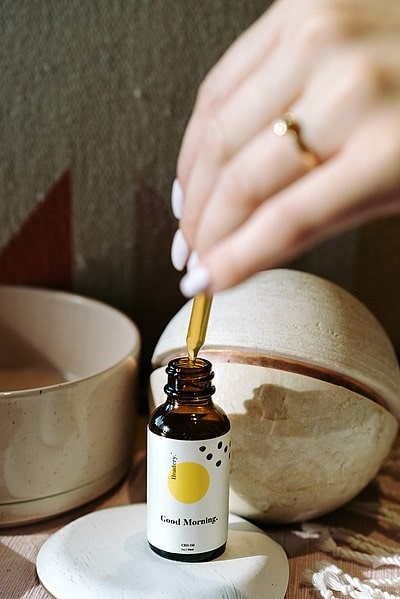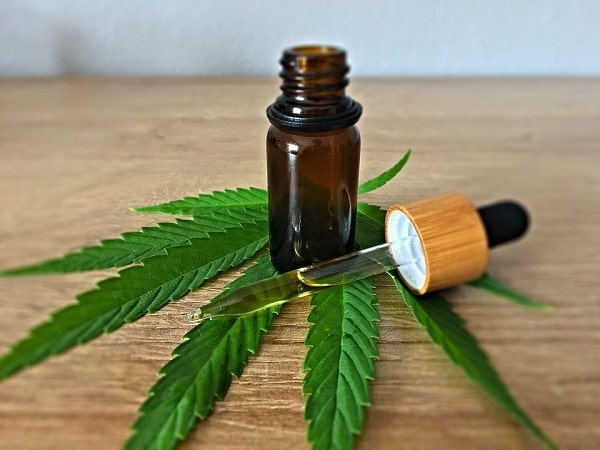
Hemp and CBD products are more popular than ever, but many people don’t know they’re two different products! The differences between CBD and hemp are subtle but knowing them will help you avoid unwanted side effects and throwing money on products that don’t fit your needs.
Whether you want to treat chronic pain, cope with chemo side effects, or are just curious about the CBD hype, here’s everything you need to know to tell CBD and hemp apart.
Not really. However, since both compounds come from the same plant species (Cannabis sativa), it’s easy to get them mixed up. Before diving into what makes CBD and hemp different, let’s cover the basics:
Cannabis is a broad term for a family of plants. Hemp and marijuana are both part of this family.
While there are different varieties, the Cannabis family shares unique compounds called cannabinoids. Two of the better-known compounds of Cannabis plants are THC and CBD.
THC has psychoactive effects, and it’s responsible for the “high” people get from marijuana. In contrast, CBD won’t get you high on its own and shares many of the medicinal benefits of THC.
Most cannabis products sold today have a mix of both CBD and THC. Depending on the ratios, you’ll get different results and you might or might not get psychoactive effects. The latter depends on the THC content of your product, the dosage, and how you use it.

CBD is short for “cannabidiol”. This is a chemical compound found in Cannabis plants. Although Marijuana plants have CBD (among hundreds of other cannabinoids), CBD by itself doesn’t have any psychoactive effects [3].
CBD extract can be bought as is in oil or tincture form, and as an ingredient in other products. In the US, CBD regulations are a grey area. Although on a Federal level CBD is lumped in the same class as marijuana and is illegal, this regulation isn’t usually enforced. The legality of CBD in the US depends on its origin: if it’s extracted from hemp it’s legal, but can be illegal in some states if extracted from a marijuana plant. In general, most people in the US can buy CBD products online even without a medical prescription.
Although many people use CBD and hemp interchangeably, “hemp” is just a broad classification under which we lump different species of Cannabis plants.
In general, “hemp” are cannabis strains that contain very little THC. Usually, hemp contains 0.3% THC content or even less. This makes hemp a sort of “cousin” to marijuana plants.
Hemp and its byproducts are legal in the US. In 2018 [3], farmers in the US were allowed to plant hemp throughout the country and use other parts of the plant aside from the seeds. This was a big step because, on top of its medicinal properties, hemp plants can be used as a cheap and readily available raw material to make rope, clothes, paper, and even fuel.
There are two main products made from hemp, with very different components: hemp oil and hemp seed oil.
“Hemp oil” can come from any part of the hemp plant, and it has CBD as well as other cannabinoids. Hemp oil is also known as “full-spectrum CBD oil” because it’s made from the whole plant. Many CBD products with low THC content are made from hemp plants.
In contrast, “hemp seed oil” is extracted solely from the seeds of the hemp plant. While hemp seed oil is rich in healthy omega-3, omega-6, and antioxidants, it has no CBD nor any other cannabinoids in it.
In the beauty industry, hempseed oil is available as a carrier oil or used on its own to hydrate the skin. Many people prefer hemp seed oil because it’s non-comedogenic and doesn’t cause breakouts, unlike other oils like coconut.
So now that you know the basics when it comes to CBD and hemp, let’s go over what makes them similar (or not):
Whether in oil or other vessels, many researchers have found CBD to be effective at dealing with common health issues. Here are some research-backed benefits of CBD:
Hemp has many health benefits thanks to its wide range of cannabinoids. In contrast, hemp seed oil has no cannabinoids but instead is packed with omega-3 and -6, as well as plenty of antioxidants. Here are some of the benefits of adding hemp to your daily routine:
Thanks to its health benefits, more and more people are incorporating CBD and hemp products into their daily lives. In fact, as of 2019 14% of Americans say they use CBD products and around 20% of those aged 18 to 29 use them on a regular basis [1].
A majority of people who use CBD products do so to deal with pain (40%), anxiety (20%), and insomnia (11%). Luckily, CBD and hemp come in many forms adapted to your specific needs:
Many people look for CBD products for their health-boosting effects. Because hemp seed oil has no CBD or other cannabinoids, it’s especially important to know what you’re getting.
Remember, “hemp oil” has CBD (and other compounds), but hemp seed oil has none. Intentionally or not, many companies use the terms “hemp oil” and “CBD oil” interchangeably, and this can lead to confusion.
In order to know if a product has CBD or not, you need to take a look at the ingredients list.
Hempseed oil is listed as “cannabis sativa seed oil” or just “hemp seed oil”. If you’re looking for CBD, it will be listed as hemp oil, full-spectrum hemp, cannabidiol, PCR, PCR hemp extracts, or phytocannabinoid-rich hemp extract.
When you see a “hemp oil” at a lower price than “CBD oil”, it’s probably because it’s hemp seed oil and not full-spectrum hemp oil.
Hemp seed oil is extracted through cold pressing the seeds. In contrast, CBD oil (also known as hemp oil or full-spectrum hemp oil) needs to be processed through an expensive and long extraction method. That’s why CBD products are more expensive than hemp seed products.
No. Only THC is responsible for marijuana’s psychoactive effects. Hemp products have a very low THC content (less than 0.3%) and hemp seeds (as well as hemp seed oil) have no cannabinoids whatsoever.
Yes. There are “pure CBD extracts” that only have CBD in it, and there are some cannabis strains with a negligible THC percentage. Your best option is asking at your local health store or CBD shop, they will point you to the strains with a lower THC percentage.
Alton Dixon
August 11, 2021 at 7:25 pm
I take the cbd every night for back pain work great.